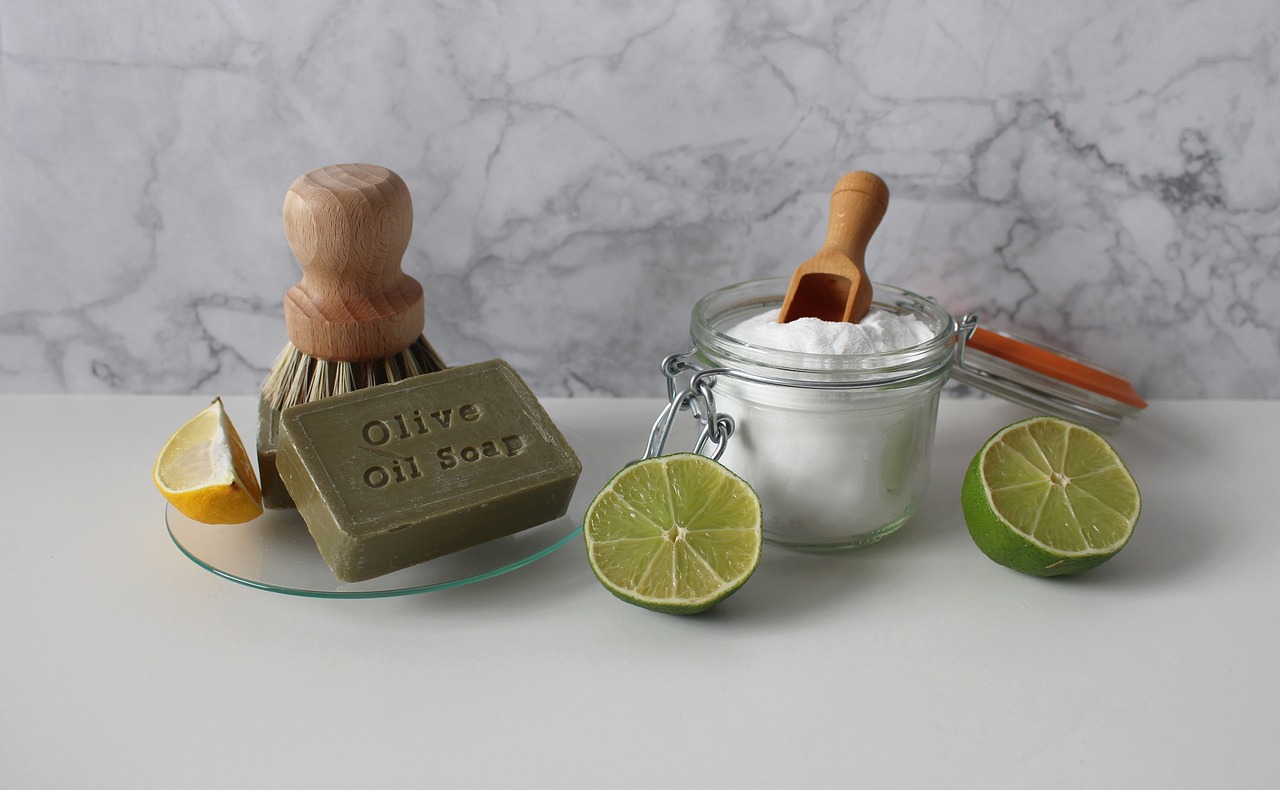Introduction
Welcome to our deep dive into the world of home-made natural detergents and soaps. As we grow increasingly aware of the environmental impacts associated with our daily choices, making a switch to sustainable alternatives has become essential. It is no different when it comes to cleaning solutions.
The Importance of Eco-Friendly Cleaning Solutions
Conventional cleaning products often contain harsh chemicals that can harm not only our health but also our environment. When we use these products, they can pollute our water systems and disrupt the natural balance of our ecosystems. Eco-friendly cleaning solutions, on the other hand, offer a gentle yet effective alternative. They minimize our exposure to toxic substances, reduce environmental harm, and often prove more cost-effective in the long run.
Overview of Natural Detergents and Soaps
Natural detergents and soaps are made using plant-based ingredients and minerals that are safe for us and the environment. And the good news? You can create them right at home. Home-made cleaning solutions give you full control over the ingredients you use, ensuring they are free from harmful substances. They can be tailored to suit your specific needs and preferences, and are a fun and rewarding project to undertake.
Brief on the Content of the Post
In this post, we will guide you through the process of making your own natural detergents and soaps. We’ll start with an in-depth look at why these alternatives are worth considering. We will then move on to the ingredients you’ll need and step-by-step instructions for creating a range of cleaning solutions. From laundry detergents to dish soaps and everything in between, we have got you covered.
Embarking on the path of eco-friendly cleaning not only brings benefits to our planet but can also create a safer, healthier living space for you and your loved ones. So let’s dive right in and start your journey towards a greener cleaning routine!
Understanding Natural Detergents and Soaps
Before we venture into the hands-on experience of creating our own home-made natural detergents and soaps, it’s essential to understand what these eco-friendly cleaning solutions are, and why they are an excellent choice for our households and the environment.
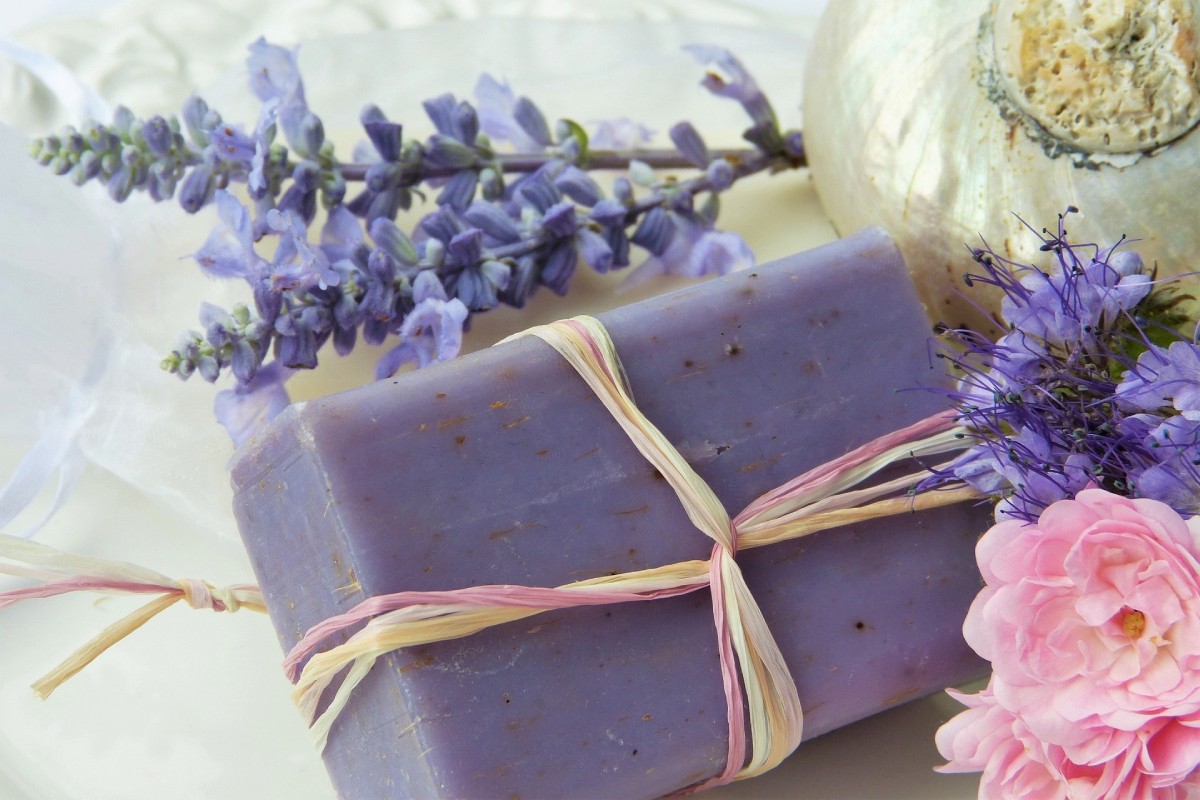
What are Natural Detergents and Soaps?
Natural detergents and soaps are cleaning solutions made from plant-based ingredients and minerals, which are biodegradable and environmentally friendly. Unlike conventional cleaning products, these do not contain harsh chemicals or synthetic compounds. Instead, they leverage the cleaning power of natural elements to effectively remove dirt, grease, and stains.
Why Opt for Natural Cleaning Solutions?
Choosing natural cleaning solutions has numerous benefits:
- Health-friendly: Conventional cleaning products can contain toxic substances harmful to our skin, eyes, respiratory system, and overall health. Natural solutions reduce this risk, offering a safer cleaning experience.
- Environmentally conscious: Natural detergents and soaps are biodegradable and do not contribute to water pollution. They support a healthy ecosystem and biodiversity.
- Cost-effective: While the upfront cost of natural cleaning solutions might be slightly higher, they often require less quantity per use, making them a cost-effective choice in the long run. Furthermore, making these solutions at home can further save costs.
Basic Ingredients Used in Natural Detergents and Soaps
Here’s a sneak peek into some ingredients commonly used in home-made natural detergents and soaps:
- Baking soda: This versatile ingredient is an effective cleaner, deodorizer, and mild abrasive. It’s excellent for scrubbing surfaces and brightening clothes.
- White vinegar: Vinegar cuts through grease, disinfects, and removes certain stains. It’s often used in DIY cleaning recipes.
- Castile soap: Made from vegetable oils, castile soap is a gentle yet potent cleaner. It’s the primary ingredient in many DIY detergent and soap recipes.
- Essential oils: Besides adding pleasant scents to your cleaning products, many essential oils have antimicrobial properties.
The following sections will guide you through creating your home-made natural detergents and soaps using these and other ingredients. By embracing these eco-friendly cleaning solutions, you can contribute to a healthier planet while taking better care of your home and well-being. Let’s delve deeper into this fascinating and fulfilling journey!
Impact of Conventional Detergents and Soaps on Environment
Transitioning to natural detergents and soaps is not just about an eco-friendly lifestyle but also about understanding the severe consequences that conventional cleaning products have on our environment. With their high chemical content, these products contribute significantly to pollution, ecosystem imbalance, and adverse health impacts.
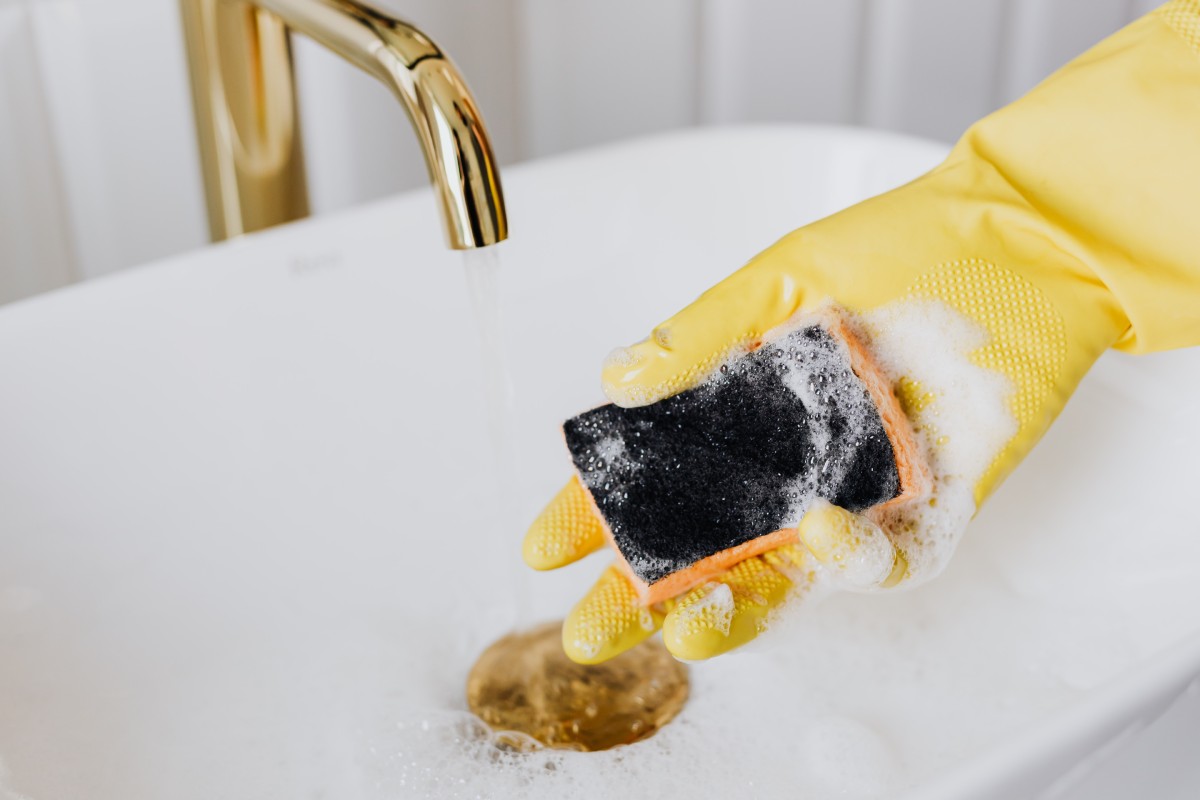
Harmful Chemicals in Conventional Cleaning Products
Most conventional cleaning products contain a cocktail of chemicals. These include:
- Phosphates: Used to break down grease and remove stains, but they cause water pollution and stimulate excessive algae growth in water bodies.
- Surfactants: They enhance cleaning ability but are toxic to aquatic life.
- Parabens: Common preservatives that are potential endocrine disruptors.
- Fragrances and dyes: Synthetic components that can cause allergic reactions and have undisclosed chemical compositions due to trade protection.
How These Chemicals Affect the Environment
When we rinse off these cleaning products, they enter the water stream. While water treatment facilities can remove some chemicals, others persist and eventually make their way into rivers, lakes, and oceans, impacting aquatic life and water quality.
Phosphates, for example, can lead to “eutrophication,” a process where excess nutrients in water bodies cause dense plant growth and death of animal life due to lack of oxygen. Similarly, surfactants can harm fish and other aquatic creatures, impacting biodiversity.
Besides water pollution, the production of conventional cleaning products also involves high energy consumption and releases greenhouse gases, contributing to climate change.
Health Risks Associated with These Chemicals
These chemicals are not only harmful to the environment but also to human health. Exposure to these substances can lead to skin irritation, respiratory issues, allergic reactions, and more severe health problems in the long run.
Moreover, many of these cleaning agents are endocrine disruptors, meaning they can interfere with our hormonal system, leading to developmental, reproductive, neurological, and immune system issues.
To mitigate these detrimental impacts on our health and the environment, shifting to home-made natural detergents and soaps is a significant step. Not only does this switch allow us to control the ingredients we expose our homes and bodies to, but it also promotes a healthier and more sustainable planet. Let’s learn how we can make this switch effectively and efficiently in the following sections.
Ingredients for Natural Detergents
The journey to crafting your natural detergents begins with understanding and sourcing the ingredients you’ll need. Not only are these elements eco-friendly, but they’re also gentle on our skin and highly effective in their cleaning power.
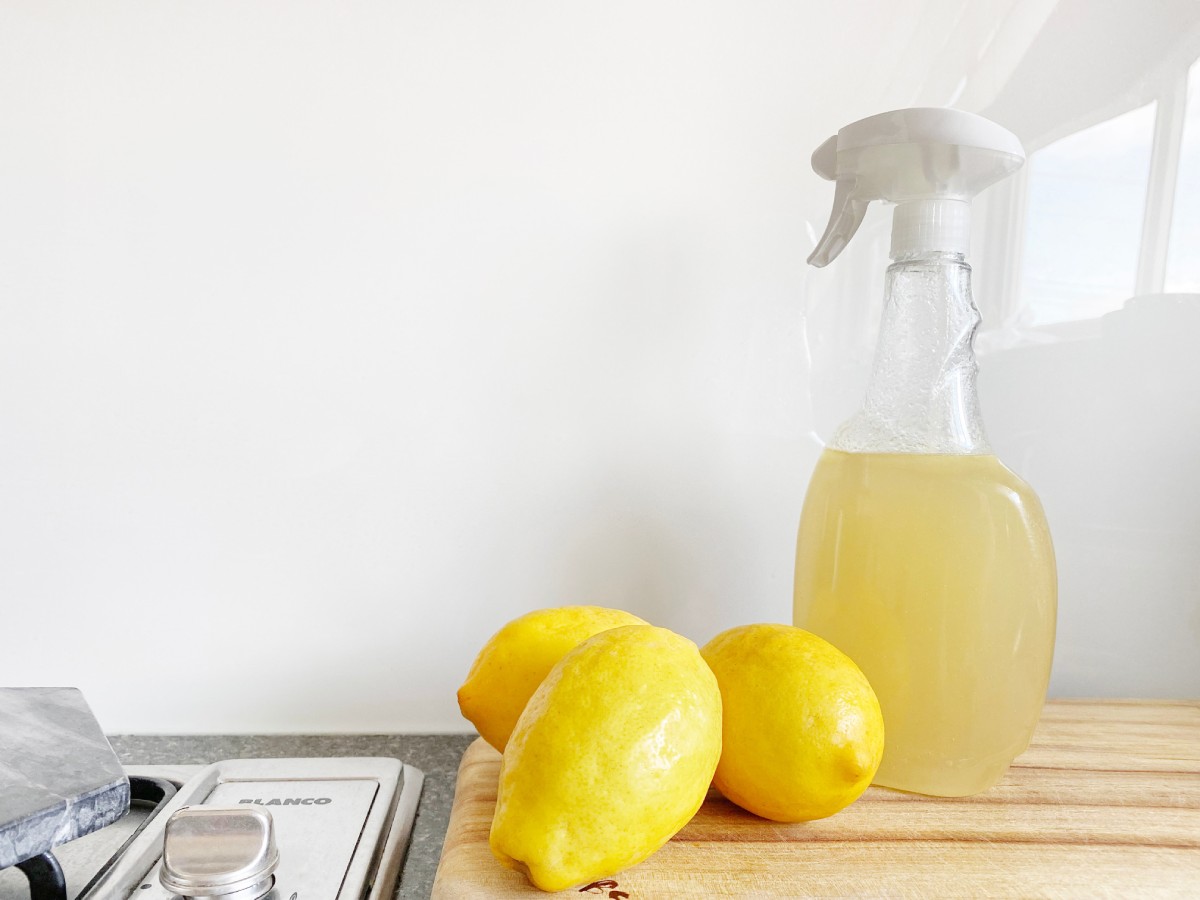
Basic Ingredients and Their Roles
Natural detergents can be crafted from a variety of ingredients, most of which are commonly found in households. The primary components include:
- Soap Nuts: They produce a natural soap called saponin, which cleans and freshens clothes.
- Washing Soda (Sodium Carbonate): It helps remove dirt and odors, softens water, and improves the effectiveness of soap.
- Baking Soda (Sodium Bicarbonate): It’s a deodorizer and cleaner with mild abrasive properties.
- White Vinegar: It’s a natural softener that also helps maintain the color of the fabric.
- Essential Oils: They provide natural fragrance and have antibacterial properties.
Where to Source Natural Ingredients
Most of these ingredients are readily available in local supermarkets, health stores, or online. When sourcing these items, aim for the most sustainable options:
- Look for packaging-free or minimally packaged products.
- Opt for organic and fair-trade versions where possible, especially for items like soap nuts.
- Choose local products to reduce carbon footprint associated with transport.
Safe Storage of Natural Ingredients
Storing your natural ingredients properly ensures they retain their effectiveness and extend their shelf life. Most of these ingredients should be kept in a cool, dry place, away from direct sunlight.
- Baking soda and washing soda can absorb moisture from the air, so they should be stored in airtight containers.
- White vinegar is best stored at room temperature, away from heat sources.
- Essential oils should be stored in a cool, dark place in their original dark glass bottles.
- Soap nuts should be kept dry to prevent mold growth.
Making your own natural detergent not only reduces your exposure to harmful chemicals but also significantly cuts down the plastic waste generated from buying conventional detergents. With these basic ingredients, we’re ready to dive into creating our home-made natural detergent in the upcoming section. Keep reading to find out how easy and fun this process can be.
Making Your Own Natural Laundry Detergent
Ready to embark on a green cleaning journey? Making your own natural laundry detergent is a simple process, easily integrated into your routine. It’s a great way to reduce your environmental footprint while ensuring your clothes are clean and fresh.

Step-by-Step Recipe
This recipe uses soap nuts, a natural, biodegradable, and hypoallergenic cleaner, combined with other powerful cleaning agents.
- First, add approximately 15 soap nuts to a muslin bag and secure it tightly.
- Place the bag in a large pot and add 8 cups of water.
- Bring the water to a boil, then reduce the heat and let it simmer for about an hour. This extracts the saponins from the soap nuts.
- Remove from heat and let it cool. Squeeze the muslin bag to release the remaining soap, then compost the used soap nuts.
- Stir in 1/2 cup of washing soda and 1/2 cup of baking soda until dissolved.
- Finally, add 1 cup of white vinegar and 20-30 drops of your chosen essential oil.
- Once completely cool, store your natural detergent in a glass jar or repurposed detergent bottle.
This formula will give you a detergent that’s safe, effective, and completely natural. It’s great for sensitive skin and won’t leave any residue on your clothes.
Tips for Effective Use
- Shake the detergent before use as the ingredients can settle over time.
- Use about 1/4 to 1/2 cup per load depending on the dirtiness of your clothes. For heavily soiled clothes, pre-soak in the detergent for best results.
- The natural detergent works in both standard and high-efficiency machines, and it’s safe for septic and greywater systems.
Potential Variations to the Recipe
Experimentation is the key to finding what works best for you. You can try the following variations:
- Replace soap nuts with pure castile soap for a different base. Grate it and dissolve in boiling water before adding other ingredients.
- Add oxygen bleach (sodium percarbonate) for an extra cleaning and brightening boost.
- If you prefer powder detergent, mix the washing soda, baking soda, and grated castile soap. Add essential oils and store in an airtight container.
With this natural laundry detergent recipe, you’ve taken a significant step towards eco-friendly cleaning. Remember, the journey towards a greener lifestyle is filled with trials and adaptations, so don’t be afraid to experiment until you find the perfect formula for your needs.
Ingredients for Natural Soaps
Making your own natural soap at home is an empowering experience. As you discover the function of each ingredient and learn to create your own combinations, you realize the endless possibilities of soap-making. These soaps are not only safe for your skin but are also eco-friendly, contributing to a healthier planet.
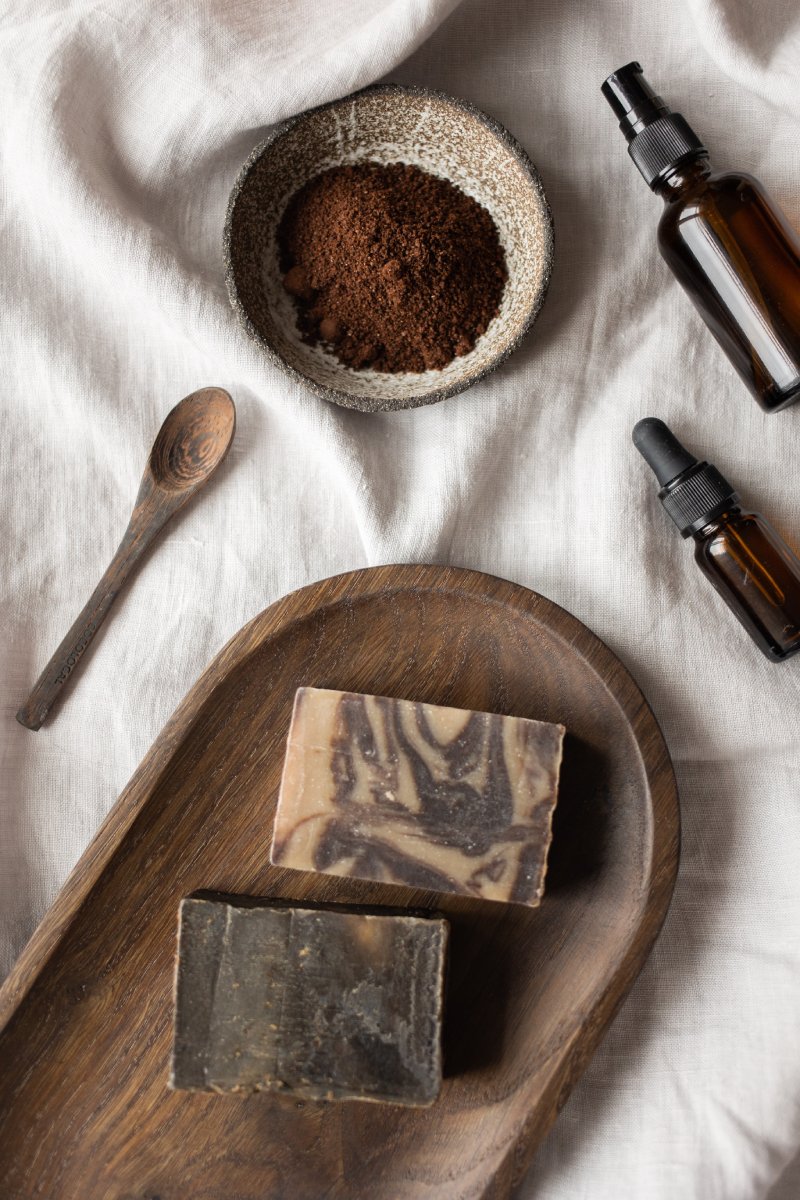
Essential Ingredients and Their Functions
The basic ingredients for natural soap-making include:
-
Fats and Oils: These are the main ingredients and determine the properties of your soap. For example, coconut oil makes a hard soap with a fluffy lather, while olive oil creates a soft soap with a creamy lather.
-
Lye (Sodium Hydroxide): This is the ingredient that transforms fats and oils into soap, a process known as saponification. It’s crucial to measure lye accurately as too much can result in a harsh soap.
-
Liquid: Water is commonly used, but you can also use herbal tea, milk, or fruit juice for added benefits.
-
Essential Oils: These give your soap its scent. Essential oils also have various therapeutic properties. Lavender oil, for example, is known for its calming effect.
-
Additives: You can add ingredients like oatmeal, honey, or clay to enrich your soap and provide additional benefits.
Finding and Choosing Natural Soap Ingredients
Most of the soap ingredients can be found in local grocery stores. For specific items like lye or essential oils, you might need to visit a specialty store or order online. Always choose high-quality, pure ingredients to ensure the safety and effectiveness of your soap. Organic and sustainably sourced ingredients are ideal choices for an eco-friendly lifestyle.
Proper Handling and Storage of Soap Ingredients
-
Lye: Lye is a caustic substance and should be handled with care. Always use protective gloves and eyewear when handling lye, and work in a well-ventilated area. Store lye in a cool, dry place, out of reach of children and pets.
-
Fats and Oils: Store these in a cool, dark place to maintain their freshness. Rancid oils can affect the quality of your soap.
-
Essential Oils: These should also be stored in a cool, dark place to preserve their potency.
-
Additives: Dry additives like clay or oatmeal can be stored at room temperature. Liquid additives like honey should be stored according to their specific storage instructions.
With these ingredients and some basic soap-making equipment, you can start creating your own natural, eco-friendly soaps at home. Remember, soap-making is as much an art as it is a science, so don’t be afraid to experiment and create your own unique recipes.
Crafting Your Own Natural Hand Soap
Diving into the world of homemade natural soap, we now explore how you can create your very own hand soap. This journey not only offers a product that’s safe for your skin but also reduces plastic waste from store-bought soaps. It’s a simple process and a great way to start your soap-making adventure.
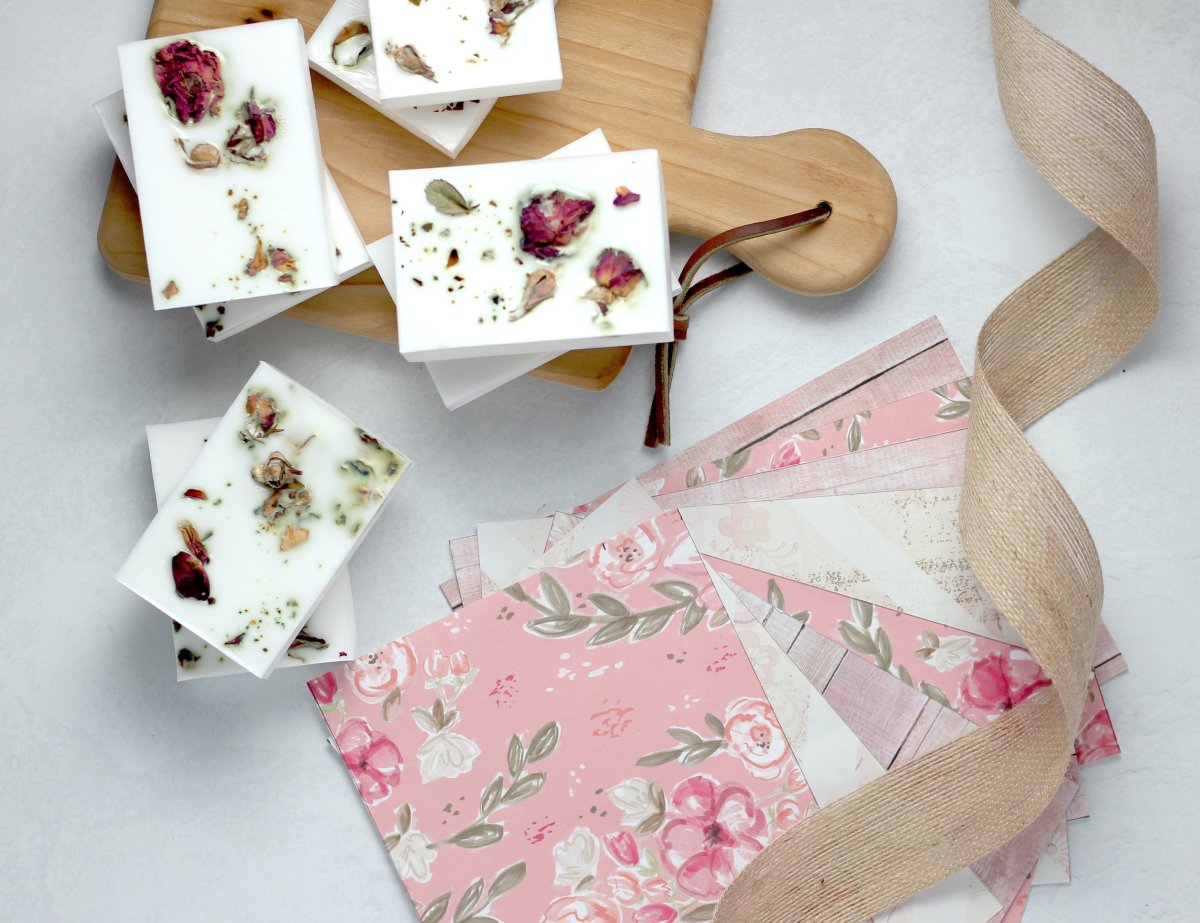
Detailed Hand Soap Recipe
The following recipe will yield approximately one liter of natural hand soap:
-
Ingredients: 250ml of pure castile soap, 750ml of water, 1 tbsp of vitamin E oil (optional), 1 tbsp of sweet almond oil or olive oil, 15 drops of essential oil (e.g., lavender, peppermint, or tea tree).
-
Procedure: Pour water into a soap dispenser, add castile soap followed by oils and essential oils. Close the dispenser and shake well to combine all the ingredients. Your natural hand soap is ready for use!
Usage Guidelines
Before using the hand soap, shake the dispenser lightly to mix the ingredients. Apply a small amount of soap on wet hands, lather, and rinse well. Always do a patch test when using a new product, even if it’s made of natural ingredients, to ensure there’s no allergic reaction. If any irritation occurs, discontinue use.
Different Variations of Natural Hand Soap
You can have fun creating various variations of this natural hand soap by trying different combinations of essential oils. Here are a few ideas:
-
Citrus Blast: Combine orange, lemon, and grapefruit essential oils for a refreshing and invigorating hand soap.
-
Floral Bouquet: Mix lavender, rose, and chamomile essential oils for a soothing and calming soap.
-
Herbal Medley: Use rosemary, peppermint, and tea tree essential oils for a cleansing and purifying hand soap.
The beauty of homemade natural soap lies in the freedom to customize it to your preferences. Play around with different essential oils, try adding skin-loving additives like aloe vera or honey, and create a hand soap that you love. Just remember, making soap is as much about the process as it is about the end product. So, enjoy the journey and happy soap-making!
The Economic Benefits of Homemade Detergents and Soaps
Venturing into the craft of homemade detergents and soaps is not only an eco-conscious choice but also a financially sound decision. Let’s explore the economics behind homemade cleaning products and the significant benefits they can bring to your household budget and lifestyle.
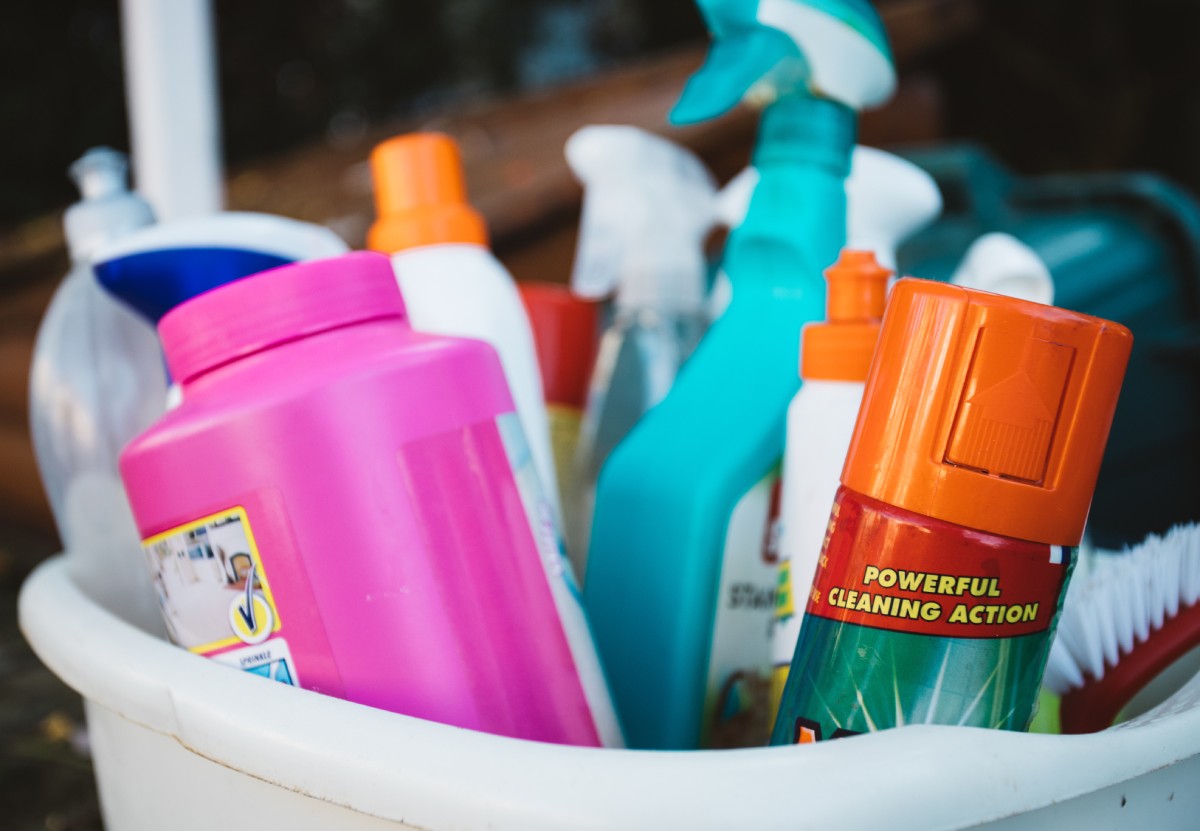
Cost Comparison: Homemade vs. Store-Bought
A critical factor to consider is the cost comparison between homemade detergents and soaps versus their store-bought counterparts. Generally, you will find that homemade products are considerably more cost-effective. Ingredients used in these homemade cleaners, like baking soda, vinegar, and castile soap, are often purchased in bulk and used in multiple recipes. This usage drives down the cost per unit significantly compared to commercially produced cleaning products. Plus, you’re not paying for water, fillers, or marketing, which usually make up a large portion of the retail price.
Savings from Bulk Ingredient Purchases
The strategy of bulk buying is one of the significant contributors to savings when making your own detergents and soaps. Many of the ingredients used in homemade cleaning products can be bought in large quantities, which usually means a lower price per unit. Items such as vinegar, baking soda, borax, and essential oils can be stored for extended periods without losing their effectiveness. Buying in bulk not only saves money but also reduces the frequency of shopping and the associated carbon footprint.
The Value of a Healthier, Eco-Friendly Lifestyle
While it’s essential to consider the dollar savings, the real value of homemade natural detergents and soaps transcends mere economics. The priceless benefits of a healthier, eco-friendly lifestyle are often overlooked in cost comparisons. By creating your own cleaning products, you can eliminate exposure to harmful chemicals often found in conventional products, improving the health and wellbeing of your household.
Moreover, you’re contributing to a healthier planet by reducing plastic waste and the environmental damage caused by the manufacture and disposal of chemical-laden cleaning products. These factors, though not directly quantifiable in monetary terms, contribute significantly to the overall value proposition of homemade detergents and soaps.
In conclusion, making your own detergents and soaps is not only an eco-friendly practice but also an economically sound decision. It requires an initial investment of time and money to buy ingredients and learn the craft, but the long-term benefits, both financial and health-wise, are worth the effort. Once you start experiencing these benefits firsthand, you’ll realize the true value of homemade natural cleaning products.
Tips for Switching to Natural Cleaning Products
Transitioning to natural cleaning products is an empowering step towards a healthier, eco-friendly lifestyle. It’s an investment in your wellbeing and our shared environment. However, like any change, it requires thoughtful planning and a few tweaks to your routine. Here are some tips to guide you through this eco-conscious journey.
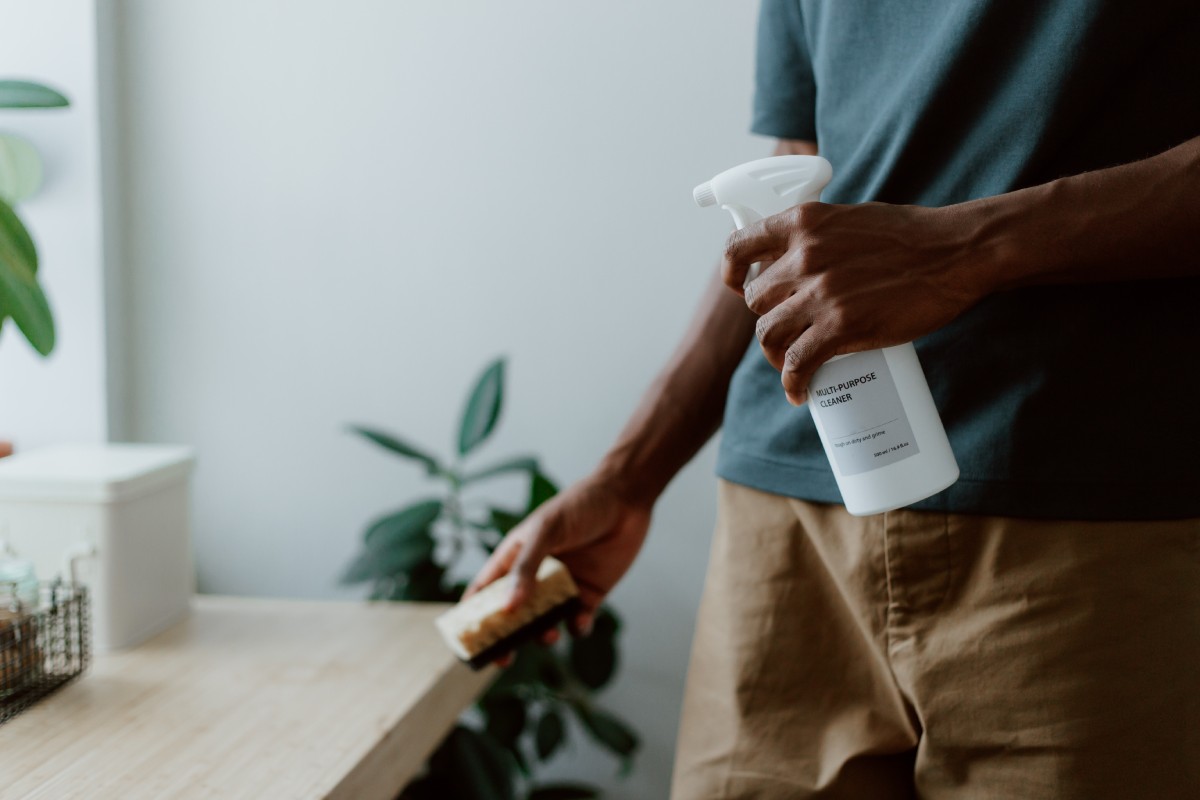
Gradually Replacing Conventional Products
Jumping headfirst into a completely natural cleaning regimen might seem appealing, but a gradual approach is often more manageable and sustainable. Start by identifying which cleaning product you use most frequently or which one contains the harshest chemicals. Once you’ve decided, look for a natural alternative or make your own. As you deplete your existing supply of conventional cleaning products, replace them with homemade or eco-friendly store-bought alternatives. This way, the switch feels less daunting, and you’ll have the time to adjust to each new product.
Being Patient with Adjustments
Remember that natural cleaning products may work differently than the synthetic ones you’re used to. Some natural solutions may require a bit more elbow grease, or you may need to let them sit for a while to tackle tough grime. Natural soaps might not produce as much foam as synthetic ones, but they’re just as effective. Be patient and give yourself time to adjust to these differences. Don’t let initial hurdles deter you from your eco-friendly journey.
Sharing Experiences and Learnings with Others
Sharing your journey towards a more sustainable lifestyle with others can be incredibly rewarding. You can learn from each other’s experiences, troubleshoot problems together, and celebrate your shared progress towards a healthier lifestyle and a cleaner planet. Whether it’s through social media, blogs, or face-to-face gatherings, don’t underestimate the power of community in promoting sustainable change.
Additionally, sharing homemade natural detergents and soaps as gifts can help others discover the benefits of eco-friendly cleaning products. You could potentially influence them to embark on their own journey towards greener cleaning habits.
In conclusion, transitioning to natural cleaning products is a significant step towards a more sustainable lifestyle. It’s not only about creating eco-friendly cleaning solutions but also about embracing a mindset of mindfulness towards our health and the environment. By taking it step by step, being patient with the adjustments, and sharing your journey with others, you can make the switch a rewarding and impactful experience.
Conclusion
We’ve covered a lot of ground in this guide, from understanding the implications of conventional cleaning products to creating your own eco-friendly alternatives. Let’s wrap up by summarizing our key takeaways and looking forward to a cleaner, healthier future.
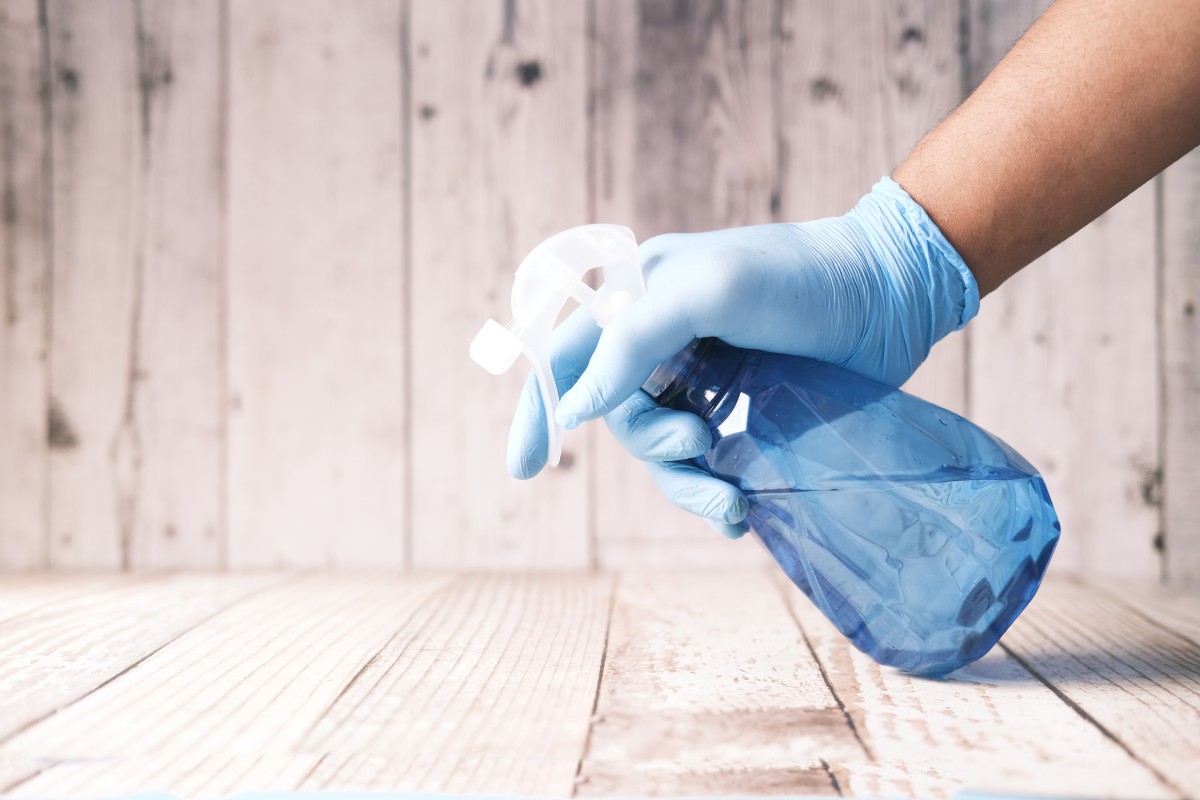
Summarization of Key Points
We started with understanding what natural detergents and soaps are, and why they’re a much better choice for our health and the environment. We discussed the harmful impacts of conventional cleaning products, both for our personal health and the wider ecosystem.
We then delved into the basics of creating your own natural detergents and soaps, taking you step by step through the process. We explored the various ingredients used in these homemade alternatives, how to source them, and how to safely store them. We also walked you through detailed recipes for both a natural laundry detergent and a hand soap.
Re-emphasizing the Benefits of Homemade Natural Detergents and Soaps
By switching to homemade natural detergents and soaps, you’re not just adopting a more sustainable cleaning regimen. You’re taking a stand against the rampant use of harmful chemicals that endanger our health and devastate our planet. You’re investing in your well-being and contributing to the broader movement for a more sustainable and equitable world.
In terms of practical benefits, homemade cleaning products are often more cost-effective than their store-bought counterparts, especially when you buy ingredients in bulk. Plus, you get the peace of mind that comes with knowing exactly what’s in the products you’re using.
Encouraging Readers to Take the Leap into a More Sustainable Lifestyle
Embracing a more sustainable lifestyle might feel overwhelming at first, but remember that every small step counts. You don’t have to do it all at once. Start by replacing just one conventional cleaning product with a natural alternative, and build from there.
Share your journey with others, and find community in the collective effort towards a more sustainable world. Celebrate each accomplishment, no matter how small it may seem.
In closing, thank you for taking the time to learn about homemade natural detergents and soaps. We hope this guide has empowered you with the knowledge and tools you need to make the switch. Here’s to a cleaner, healthier, more sustainable future for all of us.

